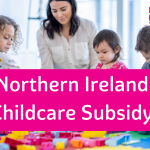What does the Chancellor’s Autumn Statement mean for families?
Yesterday (17 November 2022) Chancellor Jeremy Hunt delivered his first Autumn Statement since coming into office last month. As was expected, the Chancellor announced tens of billions of pounds worth of spending cuts and tax rises that will affect households across the UK. These are aimed at reducing levels of government debt, tackling inflation and the cost of living crisis and delivering economic growth and stability.
The Autumn Statement comes amid soaring cost of living pressures – on households and on businesses – and the highest rate of inflation in over 40 years. The Office for Budget Responsibility (OBR) has assessed that the UK is now in recession, and real household disposable incomes are expected to have fallen by 7.1% from 2021/22 to 2023/24, to their lowest levels since 2013/14, while unemployment is expected to rise. The UK’s inflation rate is predicted to be 9.1% this year and 7.4% next year.
In this context, the Chancellor argued that while “difficult decisions” have had to be made, that these are necessary to help protect the most vulnerable in society and to restore the UK to economic stability. Importantly, the Chancellor rightly confirmed that benefits will rise with inflation from April, which will be of huge relief to lower income families.
However, it is clear that – while some measures are welcome – others, or the delay of measures until next year, give rise to real concern about the coming winter, which is going to be exceptionally tough for many, and about what 2023 holds in store.
And despite a focus on increasing labour market participation, economic growth and stability – any mention of childcare was conspicuous in its total absence. If the Chancellor is serious about growing our economy and broadening labour market participation then he must ensure the right structures are in place. That means significant and ambitious investment in our childcare infrastructure to ensure high quality, flexible childcare is affordable for everyone. This is an investment that is critical to our economy and society as a whole.
Key points
Here are some of the key points from the Autumn Statement at a glance:
- Wages: The National Living Wage will rise by 9.7% to £10.42 per hour from April 2023 for those over 23, and by a similar proportion for younger workers.
- Benefits: Working age benefits and the state pension will rise by 10.1% from April 2023, in line with September’s inflation figure. This will include the household benefit cap, which is mitigated in Northern Ireland.
- Energy costs: Help with energy bills will be extended beyond April 2023 for all households, but at a lower level than the support which is currently in place.
- Energy costs: The £100 payment for those using alternative heating fuels – such as home heating oil – will be doubled to £200, and paid to all households in Northern Ireland.
- Cost of living support: Targeted support will be rolled out to lower income households through further cost of living payments.
- Personal tax allowance and thresholds: The personal tax allowance, and basic and higher rate tax thresholds, as well as National Insurance thresholds, will be frozen until April 2028, meaning that people will pay more tax on their earnings as their pay increases.
- Additional tax threshold: The threshold at which the highest earners start paying the top rate of tax – the additional rate – will be lowered from £150,000 to £125,140.
- Universal Credit In-Work Progression: Lower earning Universal Credit claimants who are in work will be required to meet with their work coach so they have support to increase their hours of work or earnings.
- ESA migration to Universal Credit: The managed migration of Income Related Employment and Support Allowance claimants to Universal Credit will be delayed until 2028, with the exception of those also in receipt of Child Tax Credit.
- Stamp duty: Stamp duty cuts will remain in place, but only until March 2025.
Read the full detail on today’s Budget on the Government’s website: here.
It is important to note that some parts of the Budget impact the whole of the UK while in other areas, such as education, the announcements affect England only because education policy is devolved to the Northern Ireland Executive and the Welsh and Scottish Governments. Where extra spending is announced on areas that affect England only, the devolved nations are allocated an equivalent sum of money using a formula known as the Barnett formula – it is up to Ministers in the devolved governments to decide how this money is allocated, although Northern Ireland remains without a functioning Executive.
National Living and Minimum Wages
From April 2023 there will be an increase in the National Living and Minimum Wages across the UK of approximately 10%. The rates from April 2023 are set out below:
- £10.42 per hour for workers aged 23 years and over – National Living Wage
- £10.18 per hour for workers aged 21-22 years
- £7.49 per hour for workers aged 18-20 years
- £5.28 per hour for all workers under the age of 18, who are no longer of compulsory school age
- £5.28 per hour for apprentices under 19, or for first year apprentices aged 19 or over.
While this will be a welcome uplift for workers, it is important to note that the increase is less than the rate of inflation. And critically, in many sectors there will be real challenges for employers in implementing these uplifts without proper investment from Government.
For example, within group childcare settings, staff salaries account for a significant proportion of costs. It is absolutely right that early years and childcare professionals should be paid a fair wage for the vital work they do, but without significant investment in funding for the sector this is likely to cause real concern about where the money will come from. This increase in salary costs will put further strain on a sector that is already struggling, and could result in further increases in fees for parents, precisely when families are already under immense pressure. It could also compound existing difficulties within the sector regarding the recruitment and retention of staff, and result in some providers having to cut the number of childcare places they can offer.
Personal taxes
There will be a continued freeze in the tax-free personal allowance and the thresholds at which you start to pay basic and higher rates of income tax until April 2028.
The personal allowance is the amount you can earn before you start paying income tax, and is currently £12,570. The freeze in the personal allowance and tax thresholds means if you experience any increase in income this will result in you paying more tax, or potentially being pushed into a higher tax band. The Office for Budget Responsibility estimates that the freezing of the tax thresholds will see an additional 3.2 million new tax payers.
The threshold at which the highest earners start paying the top rate of tax – the additional rate – will be lowered from £150,000 to £125,140. This will have a small impact on some higher rate and additional rate taxpayers who are using Childcare Vouchers, by changing the amount that can be salary sacrificed and the amount of savings they will benefit from.
The changes are set out in the table below:
| Tax band | Current income thresholds | New income thresholds | Rate of tax paid | |
| Personal allowance | First £12,570 earned | Frozen until 2028 | 0% | |
| Basic rate | £12,571 to £50,270 | Frozen until 2028 | 20% | |
| Higher rate | £50,271 to £150,000 | £50,271 to £125,140 | 40% | |
| Additional rate | Over £150,000 | Over £125,140 | 45% |
Note: These rules apply in England, Wales and Northern Ireland. Scotland has different rules to the rest of the UK. The Scottish government will set out its tax and spending plans for 2023/24 on 15 December.
The National Insurance thresholds will also remain frozen.
Business taxes
The threshold at which employers are liable to pay employers National Insurance Contributions will be frozen until 2028, however the Employment Allowance will be retained at its new higher level and will mean that 40% of businesses do not pay NICs.
The VAT registration threshold will be frozen at £85,000 until March 2026.
Corporation Tax will rise from 19% to 25% in 2023, as previously confirmed.
For companies in the oil and gas sector, the Energy Profits Levy – essentially taxing windfall profits –will be maintained until the end of March 2028 and will be increased to 35% from 1 January 2023. There will also be a new, temporary, 45% Electricity Generator Levy from January 2023.
In England, there will be a review of business rates and additional support for businesses with their rates over the next five years.
Increasing labour market participation
The Chancellor noted the Government’s concern at the sharp increase in ‘economically inactive’ working age adults since the start of the pandemic. The Work and Pensions Secretary will be conducting a review into the issues that are holding back workforce participation.
The Chancellor made specific reference to in-work conditionality for Universal Credit claimants who are in work, and plans to bring forward the roll out of the ‘In-Work Progression Offer’ from September 2023 where individuals on Universal Credit, who are in work, will be required to meet a work coach to help increase their earnings through achieving higher incomes and working more hours. This is likely to affect over 600,000 Universal Credit claimants.
This policy will not, however, address the key structural barriers that impact on an individual’s ability to work, or to work more hours – in many cases the cost and availability of childcare for working parents. The ability to access affordable, high quality and flexible childcare is critical to enable parents – particularly mothers – to move into and progress in work. Failure to invest in our childcare infrastructure is therefore the greatest issue holding back labour market participation and must be addressed to deliver economic growth and stability. It was deeply concerning therefore that there was no mention of childcare in the Chancellor’s speech, nor in the accompanying documentation.
Northern Ireland remains without a childcare strategy and without the ambitious investment that is needed for a critical sector that is facing collapse due to rising costs. This is unacceptable, and the welcome work that is currently ongoing to develop a new Early Learning and Childcare Strategy must be prioritised, with ambitious funding identified, and cannot be allowed to stall through ongoing political instability.
Uplift in benefits
In a welcome announcement, the Chancellor confirmed that benefits will be uplifted by September’s rate of inflation – 10.1% – from April 2023. This is something that Employers For Childcare along with many third sector and civic society organisations – including the Northern Ireland Child Poverty Alliance – has been calling for.
This is vital to support people on the lowest incomes, but it is important to note that inflation for the poorest households is sitting at 12.5% – and many families will still struggle to pay for their basic essentials in the long months from now until April, and beyond. Across the UK, we still have almost 4 million children living in poverty. This isn’t right and more needs to be done to support the most vulnerable in our society.
We also need to see an increase to the maximum monthly limits for childcare support through Universal Credit and Tax-Free Childcare. These have remained unchanged since the introduction of these forms of support, despite annual increases in the cost of registered childcare. Without this, ever increasing numbers of working parents will not be getting support for the full amount of their childcare costs, and parents may have no choice but to cut back their hours of work or, in some cases, come out of the workforce altogether.
The household benefit cap – which is mitigated in Northern Ireland – will also increase in line with inflation and, across the UK, homeowners on Universal Credit will be able to receive Support for Mortgage Interest loans after 3 months instead of 9 months.
The State Pension and Pension Credit will also be uprated in line with the rate of inflation from 2023, and the Chancellor restated the Government’s commitment to the pensions triple lock.
Employment and Support Allowance (ESA)
The Chancellor announced a delay to the managed migration of individuals in receipt of Income Related Employment and Support Allowance (ESA) to Universal Credit. This is a support for individuals who are unable to work due to illness or disability. With the exception of those who are also in receipt of Child Tax Credit (and who are due to move with managed migration by 2024), this will now be pushed back to 2028. This could have the effect of more people moving to Universal Credit from ESA through ‘natural’ migration, such as a change of circumstances, and who will lose the transitional protection they would otherwise have received through managed migration.
Energy Price Guarantee
The Energy Price Guarantee, reducing the per unit cost of household gas and electricity, will remain in place at its current rate until April 2023. From then, it will be extended for a further 12 months for all households, but at a less generous rate.
The £100 payment for those households who use alternative fuels to gas, such as home heating oil, will now be doubled to £200 and, in Northern Ireland, it will be paid to all households, irrespective of what fuel they use. This should be delivered to households “as soon as possible this year” and will be made as a credit to electricity accounts. Households in Northern Ireland are still awaiting the roll out of the £400 energy support payment.
There were no announcements in relation to the detail of further energy support for businesses and charities, other than that a new targeted approach will be reviewed by the end of the year – more clarity on this is essential.
Cost of living payments
The Chancellor committed to a range of cost of living payments to support the most vulnerable in the next financial year:
- £900 for households in receipt of means tested benefits
- £300 for pensioner households
- £150 for individuals in receipt of disability benefits.
Northern Ireland
An additional £650 million was announced for Northern Ireland, through the Barnett Consequential, for the Executive to spend on health, education and public services. This will be paid over a two year period in 2023/24 and 2024/25. Next week, the Secretary of State for Northern Ireland, Chris Heaton-Harris, is expected to make a statement on Stormont’s budget – which is currently facing a £650 million overspend this year.
We are here to help you
We would encourage anyone wishing to find out what financial support they may be entitled to, to contact our Family Benefits Advice Service for free, impartial and confidential advice on 028 9267 8200 or email hello@employersforchildcare.org.






